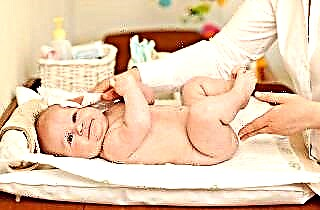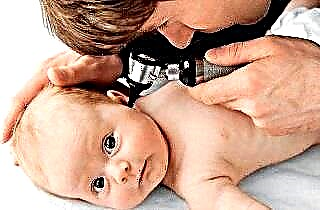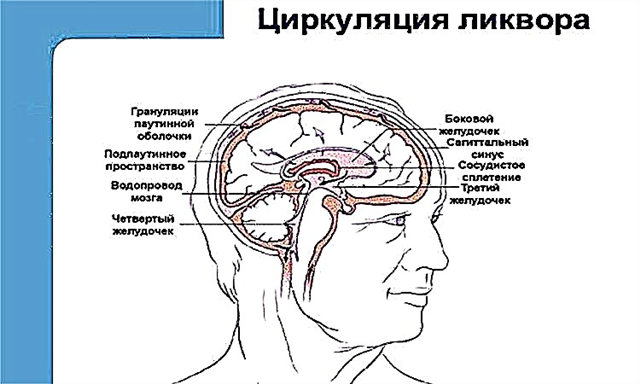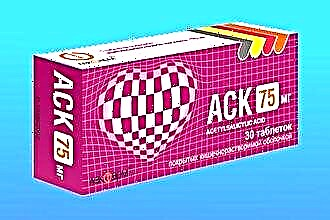Today, many parents try to teach their kids to dive and even swim in the pool from the very first days of their lives. Therefore, no one is surprised, and even less afraid of water getting into the baby's ears. After all, there are almost always no reasons for concern.
Knowledgeable means armed
 And yet, some parents have a real panic if water gets into the baby's ear while bathing. For some reason, they are convinced that after that, the child will definitely swell the sulfur plug, terrible inflammations will begin, which will necessarily reduce hearing or even lead to its loss.
And yet, some parents have a real panic if water gets into the baby's ear while bathing. For some reason, they are convinced that after that, the child will definitely swell the sulfur plug, terrible inflammations will begin, which will necessarily reduce hearing or even lead to its loss.
To avoid such a gloomy prospect, moms and dads resort to using a whole arsenal of aids - special headphones, hats and cotton swabs. What is the right thing to do?
If water gets into the ears of a newborn, it is completely normal and natural. True, in order to come to this conclusion and be convinced of its correctness, you need to have some knowledge.
The ear of a baby has significant differences from the organ of hearing of an adult. In the latter, the ear canal is longer, branched and more curved. The baby also has all these curls, but they are an order of magnitude smaller, and are also located at a right angle from the auricle. This is the reason that the liquid poured into the ear immediately comes out without any obstacles and does not linger anywhere.

Pediatricians even recommend to carry out water procedures with the baby in such a way as to ensure that water can enter his ears. At first glance, this sounds like complete absurdity, but, nevertheless, it is necessary for the natural cleansing and hardening of the hearing organs.
The ears of the newborns are closed with sulfur plugs, which served as a barrier against water loss during his stay in his mother's stomach. These plugs remain in place after the moment of birth for a certain time, so babies, as a rule, are not afraid of water.
Water got into the child's ear: what to do?
The classic situation: you were bathing a baby, and suddenly water flowed into his ears. The first priority is to eliminate it. So, after you have finished bathing your child, you will need:
- Dry the ears with a piece of ordinary cotton wool (it is better to use a sterile one). It is advisable to roll a small tourniquet out of it and shallowly, by gentle rotation, insert its tip into the child's ear.
 Pediatricians and coaches who are engaged in swimming with babies advise, after each bathing, the baby should be turned over first on one side, then on the other. There is another similar option. You can lay the baby on its side on a prepared diaper (it should be dry) for 2-3 minutes, then turn it over to the opposite side. This must be done solely in order to ensure that water escapes from the ears.
Pediatricians and coaches who are engaged in swimming with babies advise, after each bathing, the baby should be turned over first on one side, then on the other. There is another similar option. You can lay the baby on its side on a prepared diaper (it should be dry) for 2-3 minutes, then turn it over to the opposite side. This must be done solely in order to ensure that water escapes from the ears.- If the newborn gets water in the ear while bathing, warmth also helps to eliminate it. Place the baby on a blanket, woolen blanket, or short pillow (all these things should be warm), or use a heating pad (make sure it is warm, but never hot). An alternative is a compress. To make it, you will need to take a large piece of soft cloth, gauze or cotton wool and soak it with vodka. Then cut a hole in it and place it on the area surrounding the ear so that the auricle is completely open in this hole. Then cover this whole "structure" with dense polyethylene, on top of which place a warmed blanket. Lay the baby on its side - down with the ear into which the water has flowed, and hold it in this position for 3-4 minutes.
- In winter, if a newborn after water procedures will be in a cool room, you need to put on a thin hat on him. The fact is that the water inside the ears gradually cools down and can lead to inflammation and the development of infection.
Absolutely forbidden
 Did your child get water in his ear? The main thing is not to worry or panic. A much greater danger to the child's organ of hearing is represented by absolutely inadequate manipulations by dads and mothers who are trying to remove it from there at any cost. Let's list what should not be done in any case:
Did your child get water in his ear? The main thing is not to worry or panic. A much greater danger to the child's organ of hearing is represented by absolutely inadequate manipulations by dads and mothers who are trying to remove it from there at any cost. Let's list what should not be done in any case:
- use cotton swabs after water procedures;
- warm up with a hot heating pad;
- dry your ears with a hair dryer;
- use a medical pear to pump out water;
- blow out water;
- shake the baby.
All these actions and similar ones cause significant harm to the baby and have an extremely negative effect on the state of his health.
When there is danger
Despite the fact that it is normal for water to flow into the ears when bathing, there are still times when this should not be allowed:
 with otitis media and during the first 2 weeks after recovery;
with otitis media and during the first 2 weeks after recovery;- with infectious or viral diseases;
- at a low room temperature (less than 18 ° C), since water in this case will become a provoking factor for an infectious disease.
If a recently ill baby has water in his ear, what should parents do? Of course, get rid of her as soon as possible. Moreover, it will cause discomfort and even pain in the baby. When you notice that the baby, after completing the water procedures, is capricious, cannot fall asleep and tosses and turns all the time, you should immediately contact the pediatrician.
In addition, it is highly undesirable for water to enter the ears of children with immune system problems. To avoid this, you will have to completely cancel bathing during the recovery period.
How to protect your baby's ears
Sometimes it becomes necessary to protect the baby's ears from water. Today there are specially designed swimming caps in the form of visors for this. Such a hat is put on the child's head, after which all the water during bathing flows along the grooves, and not over the face and ears. As a result, she cannot get into the ears, nose and eyes, which the baby will be incredibly happy about.
 These swimming caps are usually made of silicone or plastic. Outwardly, they look like a Panama, only without its upper part. When purchasing such an accessory for a newborn, be sure to look at the diameter of his hat. The best option is models whose base stretches well. This item is also supported by the fact that the visor does not rub or press on the small head.
These swimming caps are usually made of silicone or plastic. Outwardly, they look like a Panama, only without its upper part. When purchasing such an accessory for a newborn, be sure to look at the diameter of his hat. The best option is models whose base stretches well. This item is also supported by the fact that the visor does not rub or press on the small head.
A good and very budgetary alternative to hats and visors is ordinary medical cotton wool. Earplugs are made from it. They are good if you need to thoroughly protect the ear after a recent injury or otitis media.
In order for water not to seep through a piece of cotton wool, you must first lubricate it and the auricle with vegetable oil or fatty cream. This method will help trap and repel moisture.
Let's summarize
Water is, as already mentioned, a completely natural environment for babies. Throughout your pregnancy, the baby was right in it - and, mind you, without hats, visors and cotton swabs. This suggests that there is absolutely no need to persistently protect the ears of a healthy baby from water. But if the baby managed to endure otitis media, then, of course, it is necessary to take care.
Almost always, the water flowing into the baby's ears comes out of there spontaneously, without creating problems and even minimal discomfort.
If it happens that in the process of bathing, water has accumulated in the baby's ears, do not cause a tragedy. Just use the above methods to remove it gently. When the child behaves strangely during your manipulations, do not postpone the visit to the doctor.You should always remember that calmness and a sober assessment of the situation is the key to half the success of solving your problem.

 Pediatricians and coaches who are engaged in swimming with babies advise, after each bathing, the baby should be turned over first on one side, then on the other. There is another similar option. You can lay the baby on its side on a prepared diaper (it should be dry) for 2-3 minutes, then turn it over to the opposite side. This must be done solely in order to ensure that water escapes from the ears.
Pediatricians and coaches who are engaged in swimming with babies advise, after each bathing, the baby should be turned over first on one side, then on the other. There is another similar option. You can lay the baby on its side on a prepared diaper (it should be dry) for 2-3 minutes, then turn it over to the opposite side. This must be done solely in order to ensure that water escapes from the ears. with otitis media and during the first 2 weeks after recovery;
with otitis media and during the first 2 weeks after recovery;

